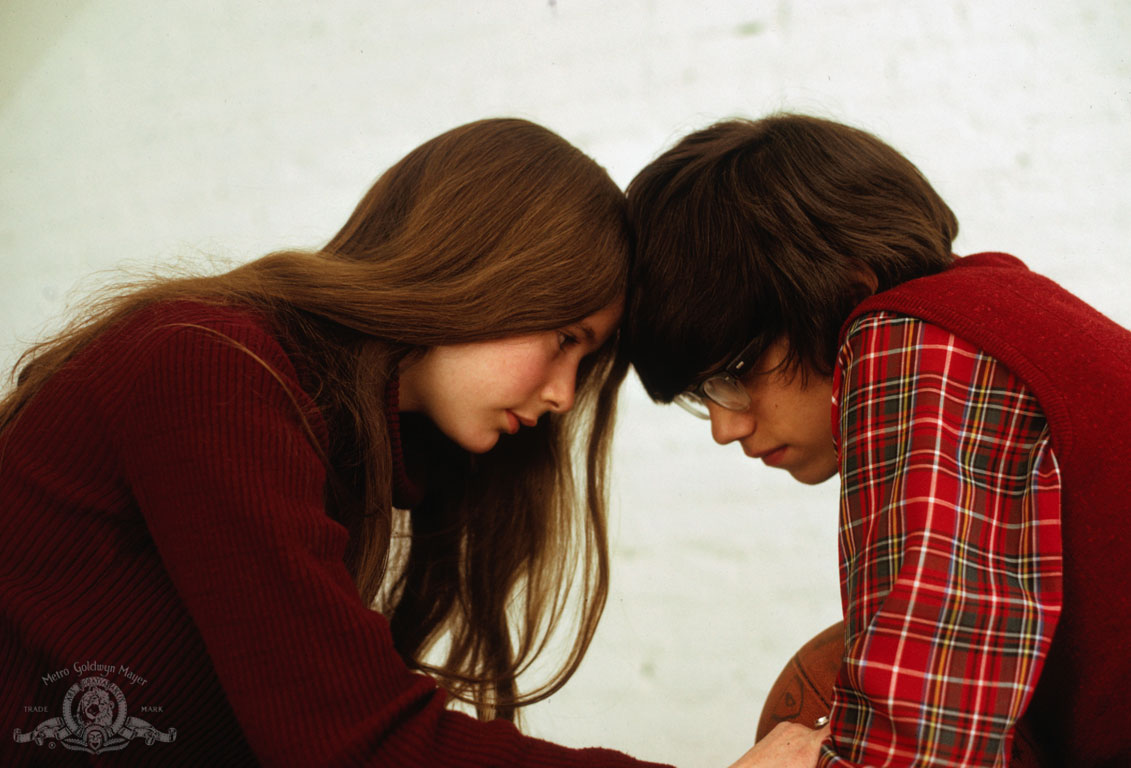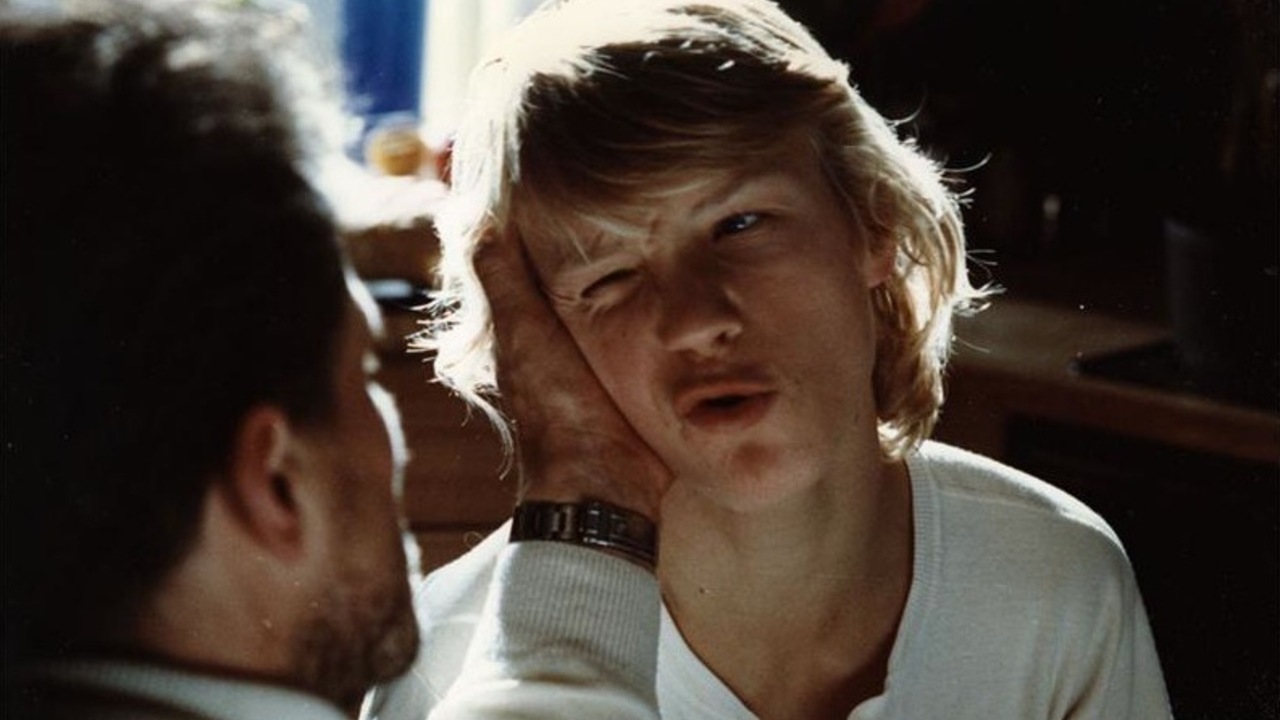Jeremy
Dir: Arthur Barron
I hadn't heard of this 1973 film until a few years ago when I heard Mark Kermode talk about how much it had moved him when he first saw it and having a similar experience when he finally saw it again after many years. Any film that resonates down the years like that must have something worth recommending in it and, even if I can't claim to love it as Kermode does, that's certainly true of Jeremy.
The story is a rather typical one of first love. The geeky Jeremy (Robby Benson) spots Susan (Glynnis O'Connor) at school and falls for her instantly. When he finally plucks up the courage to talk to her they start dating, falling into a relationship that becomes serious quite quickly. Unfortunately, a big obstacle is suddenly thrown in their way when Susan's father gets his old job back, meaning they have to move.
I understand Mark Kermode's affection for this film completely, and I suspect that had I seen it when I was the same age as Jeremy and Susan (who are 15 or 16) it would have become one of my favourite films. Seeing it now I can still feel a lot of it at a very personal level. At 16 I was much like Jeremy; a bespectacled nerd pining for the prettiest girl in school. The scenes where he's trying to call her and ask her out, asking his friend to find out about her, taking her on a date and trying to make small talk, I think we've all lived those awkward moments. This is what makes Jeremy a film that still resonates; there can hardly be an audience member who hasn't felt like this, and that powers the movie through some of its clunkier moments.
Jeremy is sometimes earnest to the point of being cloying. This would annoy me more, however, if it were a film about adults, who tend to have a little more perspective on things than teenagers in their first serious relationships. As grating as they can be, these moments also ring true, catapulting me back in time to similarly over-dramatic conversations I had with friends at that time. If I'm honest, my engagement with the characters and the relationship was probably also aided by the fact that I too would have been in love with Susan if I'd gone to school with her.
The emotional honesty of the film is thanks largely to its two excellent central performances. Both 17 at the time and just starting out their film careers, Benson and O'Connor give unforced performances that feel almost improvised. Their connection is palpable (and indeed genuine, they got together in real life for a time) and the scenes of them spending time together on dates are sweet and heartfelt. Since this film was made many American teen movies have developed a mean or exploitative streak (and I say that as someone who likes a lot of those films), but what's great about Jeremy is that it gives you two characters who are easy to root for. They aren't caricatures, just nice kids that you can identify with and even imagine having gone to school and been friends with. Watching their relationship develop in such a frank way is a pleasure.
As a story about first love, Jeremy has barely dated, but the ending makes it look like something of a relic. It still has an emotional tug, but I wonder if people raised in the internet age will feel the full force of it because Jeremy and Susan's problem could be so easily fixed today. Of course, this is not the fault of the film. For me, the melancholy ending is one of the best things about it. I'm not sure this is quite a lost classic, but I see why people would feel that way, and if you like coming of age films it's an essential one to track down.
★★★★
Lakki, The Boy Who Grew Wings
Dir: Svend Wam
Lakki, The Boy Who Grew Wings would seem to have a lot going for it. I'm fond of Scadinavian coming of age films, I like the idea of mixing surrealism and social drama (see Francois Ozon's Ricky for a great take on that odd idea) and the idea of a surrealist piece about an abused and neglected 14 year old growing wings to escape his situation is, at the very least, different. Unfortunately, for me at least, Lakki fails on just about every possible level.
First off, the drama just doesn't work. The reason that Ricky worked so well for me was that it established a real world, with strong performances, before heading into realms of surrealism. Lakki doesn't. From the off the 'real world' scenes feel just as surreal as the fantasies that Lakki has, so we're never sure what's actually happening and what Lakki is blowing out of proportion in his own mind. This is also reflected in the tone of the performances, which are overblown throughout, further undermining any sense of why Lakki really wants to escape from his life so desperately. Even when the film tries to rein these excesses in (far too late), the damage has been done and everything rings false.
The surreal sequences do have some striking images (Lakki, having been bullied by his swimming teacher, borne aloft in a crucifixion pose, by his classmates), but they all tend towards beating us over the head with their point. Frankly the film may as well be called Lakki, The Boy Who Grew An Obvious Metaphor.
I don't really have much to say about this. I found it irritating and tiresome throughout; a laboured, badly conceived and acted film that bellowed its metaphor at the audience for 105 minutes to little effect.
★
★



No comments:
Post a Comment